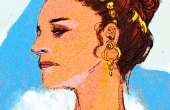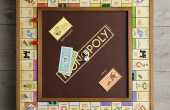J.D. Jankowski
Contributing writer for The Artifice.
Columnist I
- Plebian Penman
- Lurker
- Pssst
- Hand Raiser
- Vocal
- Outspoken
- Extrovert
- Center of Attention
- Forms a Crowd
- On a Soapbox
- From the Mountain Tops
- The World Revolves Around Me
- Sharp-Eyed Citizen
- Town Watch
- Detective Deskman
- Penman Patrol
- Forensic Fiend
- Lieutenant of Letters
- The Commenter
- Article of the Month
- ?
- Articles
3 - Featured
2 - Comments
1198
- Ext. Comments
1090 - Processed
283 - Revisions
283
- Topics
11 - Topics Taken
2 - Notes
87
- Topics Proc.
461 - Topics Rev.
303
- Points
8953 - Rank
3 - Score
9382
Latest Articles
Latest Topics
The Desire for Fame in Dante Allegheri’s “Il Inferno”In Dante’s fictional journey to hell with Virgil the poet as his guide, the vast majority of the damned that are encountered want Dante to tell of them back in the temporal world. Examples of this are Dido, Queen of Carthage (ironically written about in real life by Dante’s guide) and Ciacco the Glutton (blatantly so considering that “ciacco” is the Italian word for pig, and he behaves and looks as such). Analyze why those in Inferno want to be remembered. Is it because this is the only joy that they have left in their horrid states (to be remembered and with the possibility of being remembered fondly)? Indeed those that do not want to be told of (mainly in the 9th Circle) did things so horrid that no fondness would be drawn in being remembered. Or is it for a more selfish reason? Does this express subtlety that pride both goes before the fall and is at the root of all evil and feeds all other evils? |
The Sins of ŒdipusUpon Œdipus’s self-imposed exile from Thebes for being the reason the city held a divine curse (on account of his marriage—unwittingly—to his mother Iocaste), his sons fight a civil war (Œdipus at Collonus) to determine who will rule Thebes. The result is that both sons kill each other by each other’s hand in battle. Creon becomes king (Antigone) and refuses burial of the rebellious son, and orders that anyone who would bury him to be executed. Antigone, the sister of the brothers, assisted by their sister Ismene, buries the body. Creon initially orders her imprisonment and execution. He vacillated at this decision but too late as Antigone and Ismene committed suicide to highlight Creon’s unjust actions. Analyze how much of this is the result of Œdipus and why this is the result. Is it the result of Œdipus’ union with his mother? Or is it his curiosity (See Œdipus Rex)? In these plays, do the children suffer from the father’s sins, or are they the authors of their own tragedy? Bear in mind that the mindset of Ancient Greece held that any wrongdoing any person committed was under strict liability (intent does not matter; the act itself is good or evil). What kind of critique, if any, does the author Sophocles (a citizen of the Athenian Republic, which held the heart of Hellenic democracy) make of the rule of kings. Could this be a critique on the rule of the Spartans (Athens’s historic rival; a monarchy)? |
The Role of Hubris in Œdipus RexAnalyze the role of hubris within Œdipus in Œdipus Rex. Specifically, look at his confidence that he can solve problems of the curse of the gods in Thebes as a result of a mother marrying her son, how he believes that he is the solution to the problem instead of the problem itself. His edict that the cause of the curse is to be banished causes him to investigate affairs of the Thebian State, which culminates in discovering that Œdipus himself was the source of the curse in marrying his mother. How does hubris operate in these broad parameters? What role does truth and curiosity play? Are these things good? |
The Central Role of Inspector Javert in Les MiserablesLes Miserables passim has themes of reform, personal development and redemption. These premises are contained within the character of the protagonist Jean Valjean, particularly after his theft and forgiveness therein of his theft of a silver candlestick holder. These themes however are much more prevalent in Inspector Javert. He has an ultimate moral quandary expressed in his pursuit of the criminal Valjean. He held a virulent belief that the law was the correct course of action. His observations of Valjean’s deportment clashed with his fundamental beliefs on the law. This creates the quandary. Since he could not resolve the quandary, he committed suicide toward the denouement. Analyze Javert’s thoughts, actions, et alii in his pursuit of Valjean and how it advances the themes and aims of the literature, and ultimately its plot and thesis. An example of a key moment would be where Javert interacts with Valjean as mayor, when Valjean has another identity.
|
Stories of CreationAnalyze and compare the various stories of creation through various parts of the world. The stories examined will include Genesis, Aztec Mythology , Norse Mythology, Greek Mythology, Eastern Mythology, African Mythologies, et cetera. Specifically how are they similar? How do they differ? What sort of message do they impart?
|
The Relationship Between Odysseus and TelemakosAnalyze the relationship between Odysseus and Telemakos of “The Odyssey”. Specifically, look at the characters at their start (Telemakos being more passive, Odysseus being more hot-blooded). How do they develop? How do they influence each other in their development? How is this relevant in driving out 108 suitors from Odysseus’ home, all vying for Penelope’s hand? How does Athena influence both of them?
|
The Influence of Mexican Art in the 1920s & 1930sAnalyze the influence and impact of Mexican artwork in the 1920s and 1930s. Specifically, analyze the political messaging the art, the new indigenous themes and influences, the artists themselves (Kahlo and Rivera come to mind) and their influence on the greater art world and their contemporary artists (Picasso et al.).
|
The Decline of the Play in Poetic FormThe play in poetic form was popularized by Shakespeare, with works such as "Twelfth Night", "Hamlet", "Othello", et cetera. The Seventeenth and Eighteenth Centuries had a number of playwrights who wrote their plays in poetic form (Aside from Shakespeare, Moliere, and Racine, come to mine). However, only one such play was written in the Twentieth Century (T.S. Eliot’s "Murder in the Cathedral", and in the 1930s). Is there an explanation for such a decline in such authorship, and if so, what is it? Some factors that I would consider would be court culture (Versailles is an example), court funding for such work to have patronage, how absolute the ruler is, et cetera. If there are other factors that you would note, I am all ears.
|
Latest Comments
| Problematic Creators: How Do We Interact With Their Work? | |
I personally see social media as a tool in which we still don’t know the full implications and have not fleshed out its customs. | The Power of Social Media; Does It Enhance or Swallow Up Relationships? |
I believe the first six seasons were so praised in its time that some colleges had a courses specifically devoted to the Walking Dead. | The Walking Dead: What Led To Its Jeopardy |
Clarity is important. | Antagonist: An Analysis of Lucy in "The Light We Lost" |
It seems to me that the books are more suited toward a British audience’s sensibilities, and the movies are more Hollywood and American. | Harry Potter: Books vs. Movies |
This does express the axiom that nature tends to hug and return to the medium rather well. | The Appeal of Wednesday Addams |
The first book listed sounds like it is a strong, emotionally harsh story. | Latino Inclusivity in Popular Young Adult Novels |
Definitely an example of elements of other cultures being incorporated into the American. | The Long-Term Positivity of Multi-Cultural Children's Books |



The phrase ‘never meet your heroes; you will be disappointed’ tends to spring to mind for a number of people for different (even competing) reasons here.